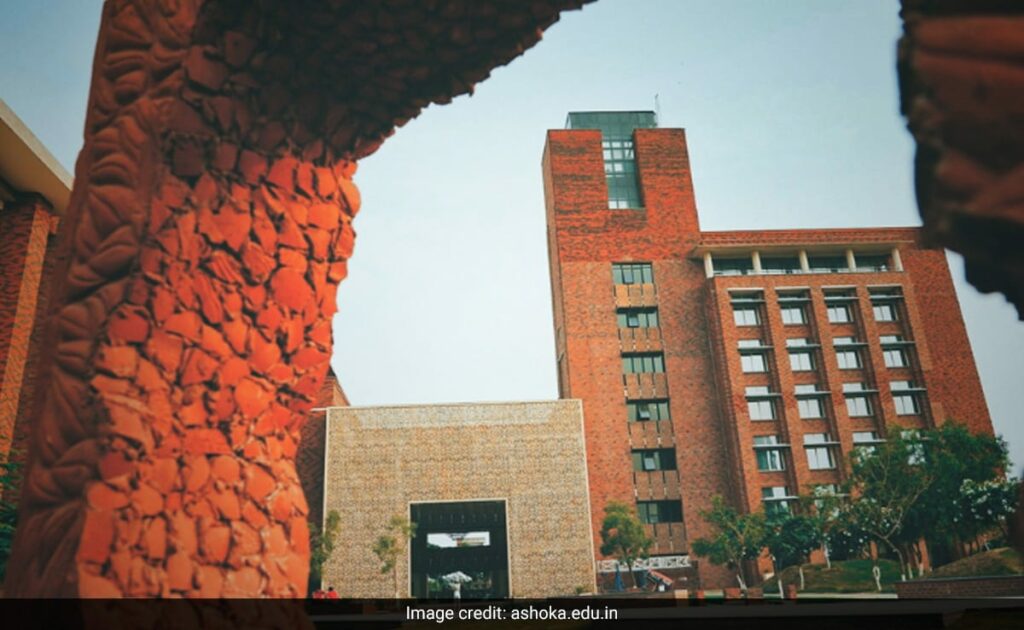The students of Ashoka University, a private university in Haryana, have allegedly raised casteist slogans. Roughly translated from Hindi to English, these slogans call for a caste census at the university, the end of the supremacy of priestly and mercantile classes, and the end of casteism. They also salute and praise a historical anti-casteist visionary and statesman, Dr. B.R. Ambedkar, by chanting ‘Jai Bhim’.
The labelling of these slogans as casteist is as ironic as calling Dr. Ambedkar casteist. The attention to anti-casteism can sometimes paradoxically appear as casteist. Therefore, it is imperative to exercise discernment and differentiate between the brute forces of casteism and humble appeals to anti-casteism.
Step away from caste for a moment. In a 1992 book titled In My Father’s House, British American philosopher and writer Anthony Appiah provocatively called a famous American civil rights activist W.E.B. Du Bois ‘racist’. This provocation must be placed and understood in a larger context of Appiah’s argument, dismantling the biological, historical, and sociological constructs of race. Appiah argues that there’s no such thing as race. Therefore, to Appiah, any and every engagement with race, including affirmative action, is racist and a pernicious advancement of racism.
On Caste-Based Quota
This is similar to one of the earliest constitutional challenges to caste-based reservation quotas in India. Champakam Dorairajan had decried such quotas for admitting students into engineering colleges, seeing them as caste-discriminatory. The Supreme Court of India ruled in favour of Champakam Dorairajan and, along the lines of Article 29(2), held that public educational institutions cannot deny admission “on grounds only of religion, race, caste, language or any of them”. This juridical anomaly was set right by the Constitution (First Amendment) Act, 1951. Among other amendments, Article 15(4) was inserted to clarify that the state can make “provision for the advancement of any socially and educationally backward classes of citizens or for the Scheduled Castes and the Scheduled Tribe”. Therefore, every invocation of caste should not be seen as discriminatory or casteist. Caste-based affirmative actions, especially, are decidedly anti-casteist.
It is important to note that even the protesting students of Ashoka, among other slogans, are calling for affirmative action in their private university settings. To characterise this expression of students as casteist would be as grave a mistake as it would be to characterise Dr. Ambedkar and the Constitution of India as casteist.
Higher Education In India
Just as with other systems of oppression, like patriarchy (Purush Pradhaanta), the English translations of Brahmanvad and Baniyavad could spark lengthy discussions. However, when these terms are incorporated into the students’ slogans, it signifies a profound understanding of the systems of oppression perpetuated by the priestly and mercantile classes, both consciously and unconsciously. The caste-specific nature of these slogans gains further significance in light of the students’ demand for a caste census.
Implicit in their demand is an understanding of the selective caste composition of higher educationists in India, which is dominated by Brahmins (priestly classes). Private university settings further appear to be caste-based collaborations and are seen as promoting commercial interests (of the mercantile classes) and claims to “intellectual” prowess (of the priestly classes). A caste census has the potential to validate or invalidate these perceptions.
Caginess About A Caste Census
Similar to the caginess of the Central government, there appears to be a caginess regarding a caste census in private university settings too. Perhaps the authorities, governments and private university administrations fear what these censuses might reveal. Maybe they are afraid that there might be some truth to the students’ sloganeering.
False allegations of casteism are discursive strategies for quelling student protests. As public educators, we are responsible for fostering the intellectual abilities of young minds, responding to their queries in meaningful ways, and advancing the mandate of higher education.
(Prof. Dr. Sumit Baudh (they/ he) teaches constitutional law. Views in this opinion are personal and informed by their comparative understanding of Critical Race Theory. )
Disclaimer: These are the personal opinions of the author
